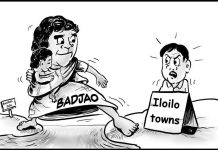
LOCAL governments must be ecstatic that billions of pesos have been pouring in by way of infrastructure projects.
Meantime, legislators have ignored the constitutional directive that education be given the highest budgetary priority.
The Department of Education suffered a P12-billion cut in the 2025 General Appropriations Act, prompting Secretary Sonny Angara to comment that the decreased funding would affect his computerization program.
***
The P12-billion cut could have funded thousands of computers and electronic gadgets for students in public schools.
Angara’s fear was this might result in learning losses and wider digital gaps.
On the other hand, the Department of Public Works and Highways (DPWH) received a budget increase of nearly P289 billion, bringing its total allocation to P1.1 trillion.
***
That was the net result of the bicameral conference now believed to have been stage-managed by two Bicolanos – then Senate President Francis Escudero and erstwhile House appropriations chairperson Rizaldy Co.
Strangely, when widespread corruption was exposed by no less than President Ferdinand Marcos Jr., local government executives denied having had a hand in the programming of flood control projects implemented by the DPWH.
For example, Mayor Glorime “Lem” Faustino of Calumpit, Bulacan said that he did not have any coordination with the DPWH regarding these ghost flood control projects.
***
Congressional insertions, bid rigging and collusion implemented at the district level redirected funds away from the most flood-prone areas and into districts favored by politicians.
Were local governments helpless as the treasury was being plundered? Or were local officials themselves complicit by turning a bind eye and not doing anything?
Or do they even know their powers under the law?
***
The Local Government Code provides that national agencies and offices with project implementation functions must coordinate with one another and with the local governments concerned.
These agencies are required to ensure the participation of local government units both in the planning and implementation of the national projects – Section 25 (b).
No project or program may be implemented by government authorities unless the required consultations are complied with, and prior approval of the sanggunian concerned is obtained (Section 27).
***
This requirement does not apply in all situations. The programs that need local consultation relate to those that may cause pollution, depletion of non-renewable resources, or the eviction of a particular group of people residing in the locality, etc.
We have yet to come across jurisprudence exempting the DPWH from this requirement.
The Civil Code provides that acts executed against the provisions of mandatory or prohibitory laws are void. This can mean that failure to comply with the consultation requirement will render the project null and void.
***
Local governments are reluctant to insist on their power to review national projects that concededly have a more direct effect on their communities.
But then, is it the LGUs or the people who lead them?
Now we have an inkling why legislators always want to extend their power and influence not only over local chief executives but also over the sanggunian./PN







